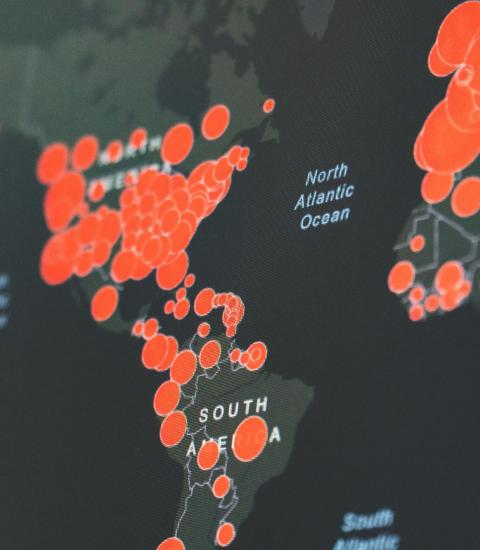
This is creating a very challenging environment for scholarly activity and our academic work has to be put into perspective alongside important family and public health matters. Nevertheless, we will endeavour to ensure that the business of the journal continues effectively, to the highest standards, yet at the same time sympathetic to the situations that our authors, reviewers and Associate Editors find themselves in. Thanks also to IOS Press for keeping the ‘show on the road’.
The Coronavirus is impacting on all aspects of contemporary life and new technology is playing a central role in our coping mechanisms. Social Media is being used extensively to keep families, friends and work colleagues in touch. Across the globe there are millions of children being schooled from home via technologically mediated education platforms. Data and information deriving from eGovernment systems, applications and perspectives are shaping societal responses to the crisis. There has been extensive modelling of the pandemic, offering different policy strategies and outcomes. Access to public services has migrated to be almost exclusively available online. Innovative technological solutions to our current social environment have been mooted, for example there have been media reports of drones being used to observe social spacing, tracking of mobile phones to investigate infection histories and the potential use of face recognition systems to replace traditional physical identity mechanisms.
The pandemic has highlighted again concerns about misinformation distributed through electronic media channels. There is also an increased risk of computer viruses and malware now that organizational infrastructures need to be accessed from home. The crisis also highlights our dependency on technology and shows that it is becoming virtually impossible to do any work if technology fails us. Importantly, we must recognise that the key information infrastructures, such as Skype, Teams and Zoom (etc.) are commercial platforms, mostly controlled by by American companies, meaning that the corporate dominance and control over all communications is increasing and extending further into our lives. In these unprecedented times the information polity becomes all important and is central to the functioning of society.
In time, as society adjusts and recovers from the pandemic we will learn more about the role and impact of technologically mediated informational practices during this period. The eGovernment scholarly community will be well placed to develop theories and models, as well as historical accounts, of the roles played by information and communication technologies, especially in relation to democratic processes, the formation of public policy and the delivery of public services.
In the meantime, we hope that you enjoy reading the latest edition of Information Polity.
Look after yourself and keep safe.
Editors-in-Chief
Professor Albert Meijer
Professor William Webster



